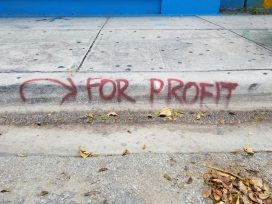I have to start with a frank disclosure. For 40 years, I have been a faithful reader of the Kyiv-based journal Vsesvit (“The World”). For more than 30 years, I have been one of its contributors. For two decades, I have been a staff editor there, ending my career in 1994 as a deputy editor-in-chief. And today, after moving to academia, I still remain a committed reader, author, and member of the editorial board.
Vsesvit is an independent journal, with very limited resources acquired painstakingly from various grants, but with high and well-grounded ambitions: to promote world culture and literature in Ukrainian translations. I greatly respect all the people who work for Vsesvit – for a meagre salary and symbolical royalties but also for an encouraging feeling of doing something good and important.
A few days ago, I learned that on April 26, a group of unidentified individuals broke into the Vsesvit office at the Hrushevsky Street, ironically located next to the Ukrainian parliament and Cabinet of Ministers and not very far from the President’s administration. The intruders demanded that Chief Editor Oleh Mykytenko vacate the premises and renounce his claim to the office legally owned by the Vsesvit Publishing Company. They behaved in an extremely rough fashion, tried to damage Vsesvit property, and threatened personnel with further repercussions if they did not step down. Some suggested they were acting on behalf of a certain Valeri Kharlim, an MP from the Party of Regions (little surprise), protected reportedly by the first vice Prime-Minister Valeri Khoroshkovsky. They argued they had their own documented claims to the Vsesvit
property – and this might well be the case in a country where the
written laws are foggy and contradictory whereas unwritten laws reign
supreme.
The story is hardly unique and certainly not the most eye-catching against the background of other events in Ukraine that have recently drawn public attention. Whereas mass media discuss the alleged beating of Yulia Tymoshenko by prison guards and four mysterious blasts in Dnipropetrovsk, attributed to unspecified “terrorists,” the raiders’ attacks on property in Yanukovych’s Ukraine is a daily practice that evokes little international attention, except for the cases where foreign companies are involved and western embassies interfere.
“Raiding,” as Andrew Rettman defines it, “is a form of hostile take-over in which someone bribes or blackmails courts to enforce a bogus claim against a profitable business. It can involve a van-full of balaclava-wearing men breaking into your office to tell you that you are no longer the owner. In extreme cases it can involve people shooting at your staff. Most victims are small-and-medium-sized Ukrainian firms in the agricultural sector. But foreign companies are not immune.” Indeed, even the steel giant Arcelor Mittal that purchased unwisely the Kryvorizhstal mill for $5 billion from the previous government, four years later became a target of coordinated raiders’ attacks and pressure from the authorities.
“This problem,” one expert contends, “is on the increase and it is common knowledge that it cannot happen without collusion from the authorities.” To prove this claim, Andrew Rettman refers to Transparency International’s latest corruption ranking, in which Ukraine dropped 18 places and now ranks below Nigeria. The European Business Association (EBA) has also lowered Ukraine significantly in its index of investment attractiveness. “You cannot protect your legitimate interests in the courts,” the EBA director Anna Derevyanko says. “This comes up in many conversations with potential investors. It makes them reluctant to go ahead.”
Not surprisingly, not only foreigners but also Ukrainian businessmen prefer to invest their money abroad rather than in Ukraine. Small-and-medium-sized companies have little choice in this regard, however. And even fewer options are at stake for cultural journals. All of them seem helpless vis-à-vis powerful gangsters and unscrupulous government: intertwined and interconnected, practically fused into one body. One by one, they are raided and racketeered, raped and pillaged, even though there are thousands of them, and all they need for successful resistance is unity and solidarity. Two years ago, we Ukrainians allowed the raiders to unlawfully take over the parliament and the government. Now, we allow them to destroy and subdue us gradually, one by one, one business after another. Vsesvit has never been a political journal. Its editor has always believed, perhaps sincerely, that culture is universal, and that any government is able to appreciate it as a much-needed public good. He was wrong. Ukraine has a government that appreciates only brute force, endless amounts of money, and cynical lies.
Much of the international criticism of the Ukrainian authorities has been expressed within the past two years. Their typical reaction can be graphically exemplified by a recent decision of the ruling Party of Regions (PoR) to hire one of the world’s largest corporate communications companies Burson-Marsteller to whitewash the regime. Or, as Robert Mack, a senior manager at Burson-Marsteller, explained it: “Our brief is to help the PoR communicate its activities as the governing party of Ukraine, as well as to help it explain better its position on the Yulia Tymoshenko case.” Less euphemistically, its task is to step up the smear campaign against Tymoshenko and to tame international criticism of the Ukrainian authorities, especially the president who has become virtually an international pariah.
They seem to believe – naively or, rather, arrogantly – that money can fix any problem. And if it is insufficient, then bigger money is needed. Burson-Marsteller might be a good choice for a government in big trouble. In the past, “the PR company was employed by the Nigerian government to discredit reports of genocide during the Biafran war, the Argentinian junta after the disappearance of 35,000 civilians, and the Indonesian government after the massacres in East Timor. It also worked to improve the image of the late Romanian president Nicolae Ceausescu and the Saudi royal family.”
One may recollect here also Leonid Kuchma’s attempt to rescue his image after “tapegate” with the assistance of similar whitewashers. What all these exclusive clients of PR companies fail to understand is that they can win many battles – against Tymoshenko, Lutsenko, Vsesvit, or even Arcelor Mittal – but they can never win the war for the truth and for the real place they occupy in history.






